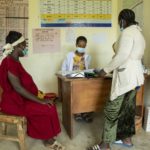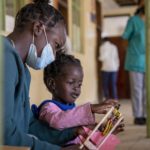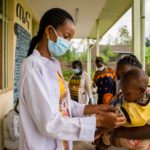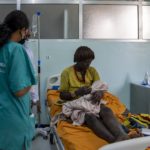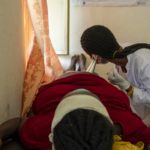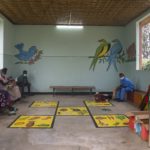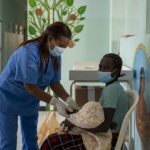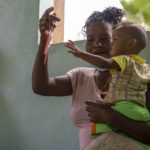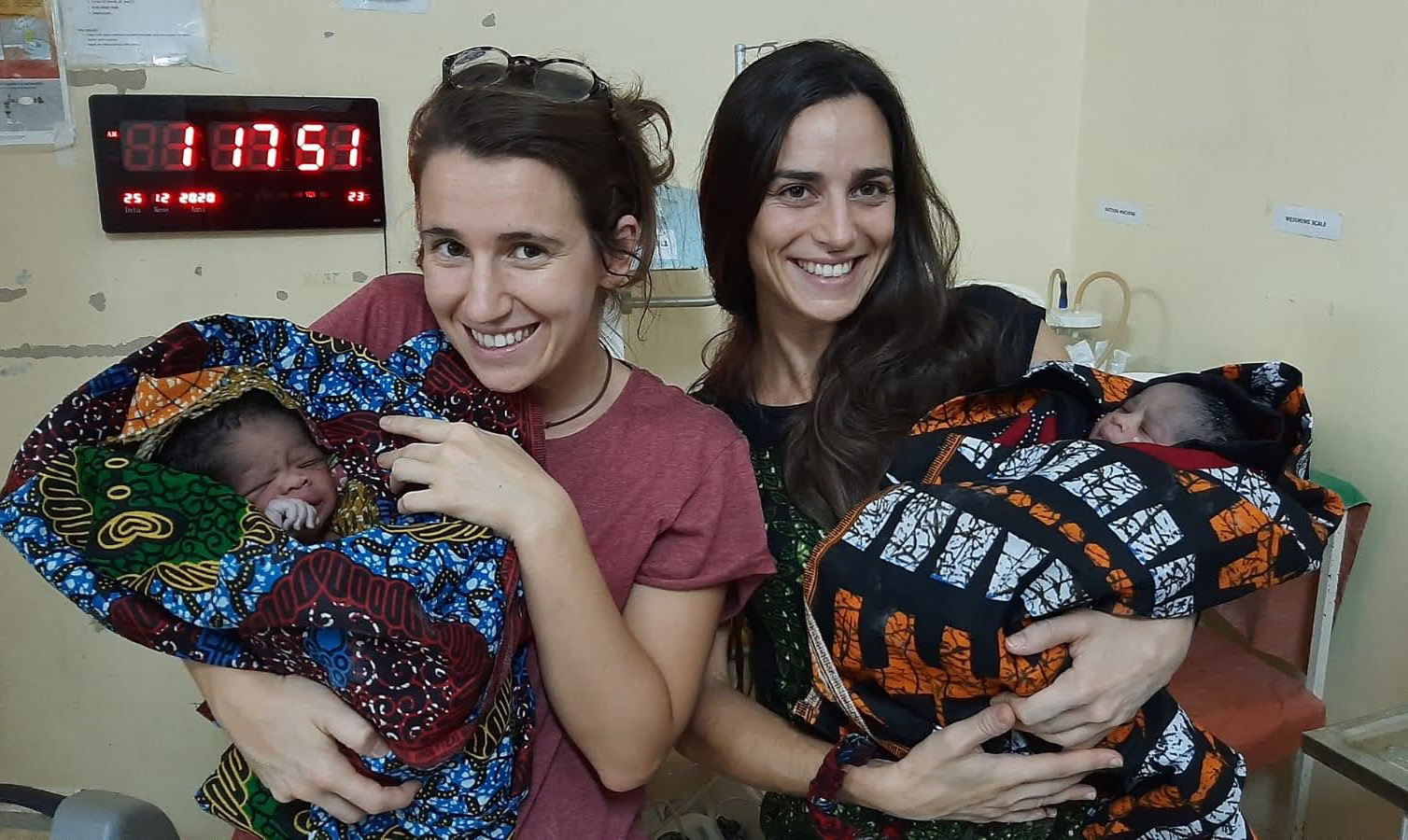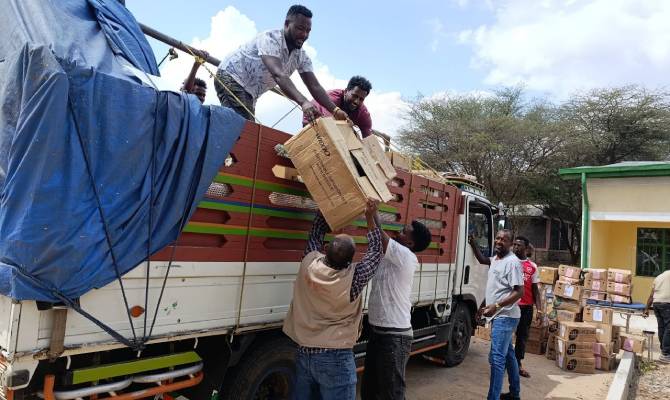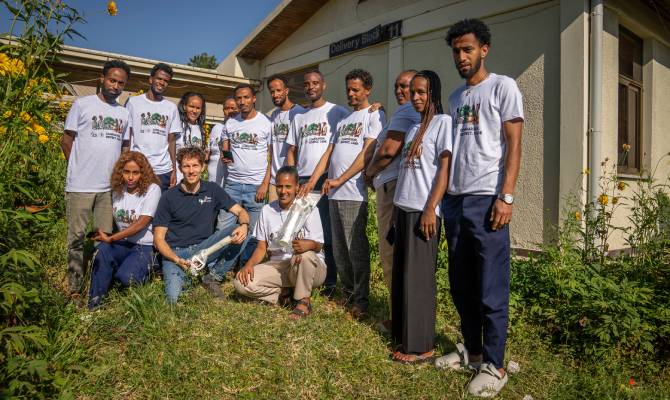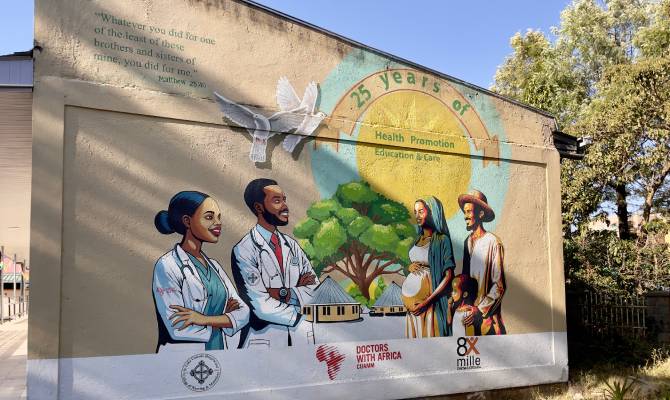«It was very intense to live and work in a place as remote as Jinka. Being alone totally exposes you to the local culture and allows you to connect deeply with your colleagues. It was an opportunity that really opened my mind. Certainly, the hardest aspect for me was the touch, also in a physical sense, with the experience of death, because I found myself frequently ventilating and giving heart massage to infants and children. We see so many die that would be saved by us; but even in Jinka, if we continued our support, remarkable improvements could be achieved, despite the fewer resources available. “Exposure” to death has, however, taught me to have a more discerning clinical eye, to better assess the actual severity of a patient, and also to scale back what we see in our work in Italy.
In such a special and different context from ours, I was inevitably confronted with cultural and social differences that are also reflected in my work. The Ethiopian specialists doctors are prepared and well disposed to collaborate and to have a confrontation; some nurses, on the other hand, are a little less flexible to accept changes and less attentive to the patients. It has also been a challenge to treat patients from such particular and different ethnic groups. Recourse to traditional care is frequent and this leads to serious health problems for children and adults. In addition, one has to deal with a public healthcare system that is almost totally at the patient’s expense (only infants up to the first month of life and malnourished children are exempt) and, often, families are unable to pay, so they have to renounce treatment. As a doctor accustomed to a different reality, one learns to be more cautious about truly essential treatments and tries to find with the family all possible ways for them to bear the cost of treatment.
CUAMM’s work can be seen, it is tangible, and it is also recognised and valued by the local staff and those who run the hospital. A commitment and presence that has been going on for years. The project “The first 1000 days. Guaranteeing quality health services to mothers and children in the South Omo Zone”, financed by the Italian Agency for Development Cooperation and implemented in partnership with Amref and the Children’s Health Centre (CSB).
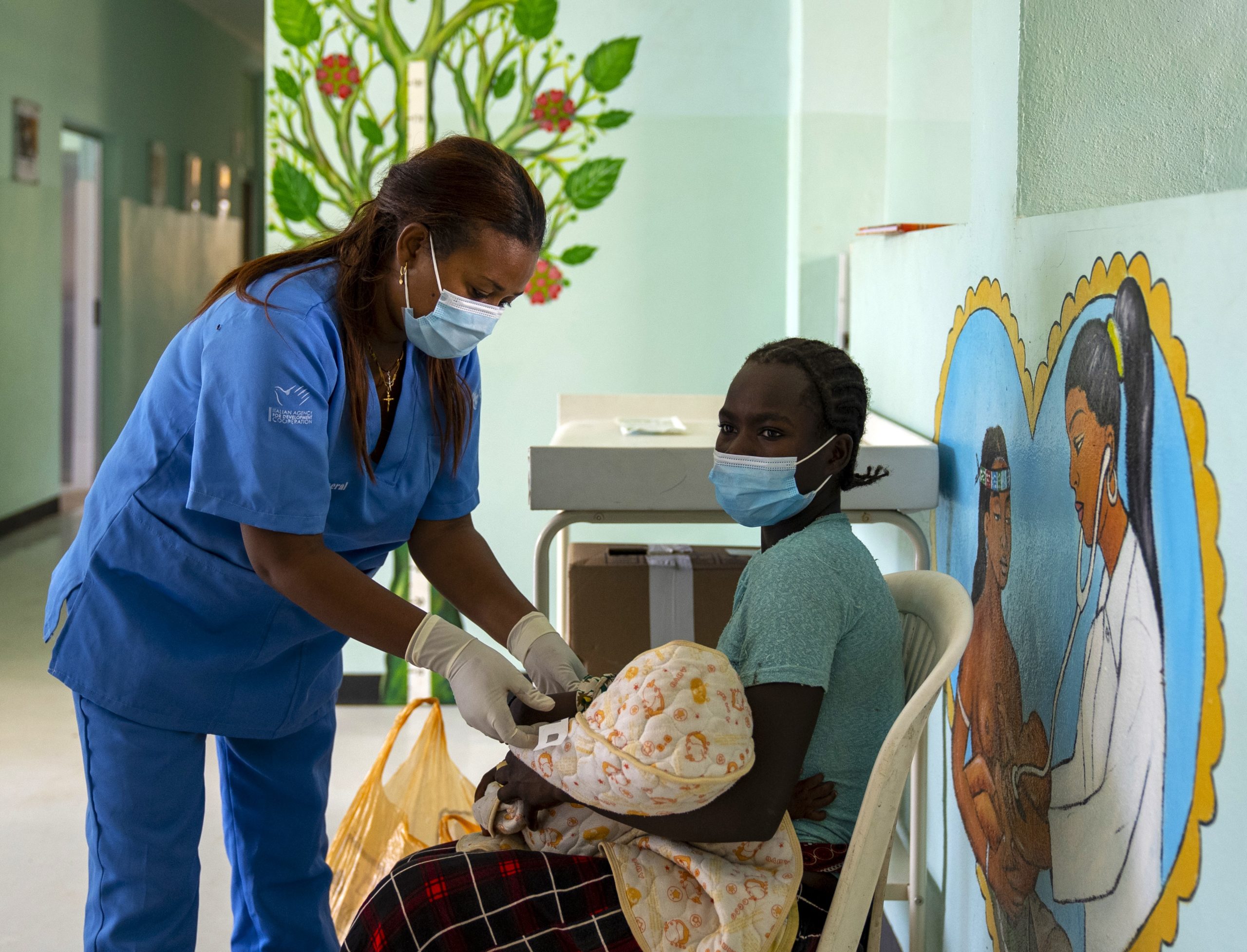
What goes unseen…
«From this mission I learnt the essentiality of medical care, which is sometimes lost with us. There are basic, unavoidable actions that must always be assessed to establish the criticality of a patient. At the same time, I believe I have transmitted, especially to general practitioners, a more responsible attitude to work and more critical thinking. A concrete example was the management of PICU, the paediatric intensive care unit, on which we always discussed openly, making the necessary decisions together.
The opening of the PICU was a great satisfaction, an excellence in a context such as Jinka. It has only three beds, with monitors and ventilation, at the disposal of the young patients who are carefully looked after 24 hours a day. We have managed to achieve good results. Among the many situations that have occurred and patients we have met, I vividly remember Netsi, a 1-2 year old girl – there, often, the age is not known precisely – who was the first patient admitted to the PICU. She lived in a hut with her mother and her father, who drunkenly knocked over a pot of boiling water, hitting Netsi and burning her over most of her body. Netsi was hospitalised for four weeks: a constant presence in our daily routine. Being the first patient in the PICU and having a major burn, it was also an opportunity for local colleagues to practice caring for such a delicate patient. In addition, the operators had explained to the mother how to play and interact with Netsi, demonstrating how stimulating children, even in pain and suffering, is really important. Within the “The first 1000 days” project, in fact, special attention is given to Early Childhood Development, the cognitive, physical, linguistic, motor, social and emotional development activities of the child in the first years of life. There is a space dedicated to this and, every now and then, outside, the workers organise a coffee ceremony, as is the tradition, to make parents aware of the importance of play and interaction with their children, particularly in the treatment of malnutrition. Jinka clearly showed me what healthcare is like in the world. We tend to think that ours, the Western one, is the norm, but it is not. We are the exception and Jinka confronts us with that».



